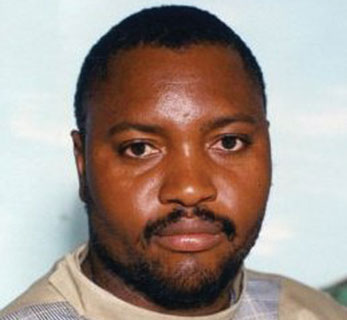
RECENTLY, His Eminence from Nkandla Palace was at his gaffing best when he warned South Africans against reasoning like Africans in Africa. President Jacob Zuma wanted to convince his restive countrymen to accept the toll fees levied on motorways around Johannesburg and Pretoria.
He used the poor state of roads in most parts of Africa to raise his countrymen’s conscience on the need for a commitment to the payment of toll fees.
In a not-so-unusual glimpse of destructive brilliance, Zuma said: “We can’t think like Africans in Africa generally. We are in Johannesburg. This is Johannesburg and not some national road in Malawi.”
He temporarily excused himself from diplomatic niceties and delved into contrasting Gauteng’s structurally imposing and economically viable transport infrastructure with Malawi’s less demanding and more rundown one. Zuma only realised the folly of his utterance when the wrath of the incensed Malawians accrued.
A closer look at the man himself may shed some light on his reasoning pattern. Zuma is one gentleman who really is an African at heart, if not in his loins.
Like a true African, he follows African traditions, cultures and norms to the book when it suits him. His favourite pastime which identifies him as a true African is his proclivity to extra-marital disputes and poly-matrimonial engagements.
As a true African, Zuma has found time to groom as many brides as his heart desires under the guise of some archaic Nguni tradition of polygamy. Adherence to this tradition is common in Zululand and Swaziland and pervades the rest of Africa.
This is a tradition that time has forgotten yet those in Zuma’s ilk refuse to let go. It is a tradition that African men like Zuma use to unromantically express their virility.
- Chamisa under fire over US$120K donation
- Mavhunga puts DeMbare into Chibuku quarterfinals
- Pension funds bet on Cabora Bassa oilfields
- Councils defy govt fire tender directive
Keep Reading
In snide terms, Zuma is an African man who thinks like an Afrikaner bull enclosed in a kraal full of cows.
In short, he is an African in South Africa who occasionally thinks like a Zulu peasant confined to the conservative rural environs.
He should not be lauded or lynched before weighing the merits and demerits of his insinuations. To his credit, he is an African who knows the economic peril of thinking subjectively.
He knows that sometimes the African mentality does not look beyond a day’s meal. Sadly when he exercised his right to think like an open-minded person he touched a raw nerve. This resulted in the tiny and monumentally impoverished nation citing a breach of diplomatic etiquette.
He was accused for being arrogant and disparaging towards his less fortunate African relatives on the continent.
Yet in this case Zuma had a point to make! Zuma’s statement was not pregnant with malicious intent towards Africans.
It was a naked truth on the state of Africa’s roads. What he meant was that Africans in South Africa, including the thousands of Malawians resident in South Africa, should exercise more sophistication than Africans in some village in Malawi would ordinarily think.
Denizens of a cosmopolitan area are naturally expected to know that the artificial life they lead has to be paid for.
Zuma spoke from a well-informed position on the disparities of infrastructural development within greater Africa.
He did not intentionally deride economically struggling African countries such as Malawi. He candidly highlighted that roads in greater Africa were in a bad state. It is by no means a diplomatic gaffe to state that Malawi’s stagnant economy has led to poorly crafted and badly maintained roads.
Surely even the president of Malawi admits that Malawi is a fitting example of an African state on the brink.
Malawi’s economy is comparable to the derelict structures in downtown Mogadishu. It is so rundown that it has to be on life-support equipment in economic intensive care. President Joyce Banda knows so and she has made no attempts to hide this.
Her notoriety for begging for alms from richer countries to mitigate her country’s dire situation is proof that most Malawians wallow in poverty.
The country’s position as a desperate beggar culminated in Malawi forfeiting the right to host an African Union summit after taking a drastic declaration that Sudan’s Omar al-Bashir would be denied entry to Malawi.
Here Malawi, a poor serial beggar, was acquiescing to the demands of her trusted Western donors.
Zuma could have cited Zimbabwe as one African state with more potholes than there is bitumen on its highways.
Perhaps he chose Malawi because he genuinely felt that Banda was someone open to constructive criticism. He may have tactically avoided mentioning the embarrassing state of Zimbabwe’s roads due to exasperation with his northerly neighbour.
After all, Zuma has hinted on South Africa not wanting to emulate Zimbabwe in becoming a failed economic case. There is nothing wrong in exposing Africa as having terrible road networks due to under-investment and bad planning.
It is not a xenophobic phenomenon for countries with flourishing economies to brag. The less fortunate ones should aim to emulate those successes.
It is no wonder why Zuma warned South Africans from viewing the country’s economy with eyes that are occluded by the African syndrome of failed states such as poverty-stricken Malawi and hunger-prone Zimbabwe. Zuma merely rewrote the expression “you snooze you lose” by naming the elephant in the room.
Does this not remind us of the early ’80s when Zimbabweans used to brag that their country would never do a “Zambia” with her economy? Masola wa Dabudabu is a social commentator










